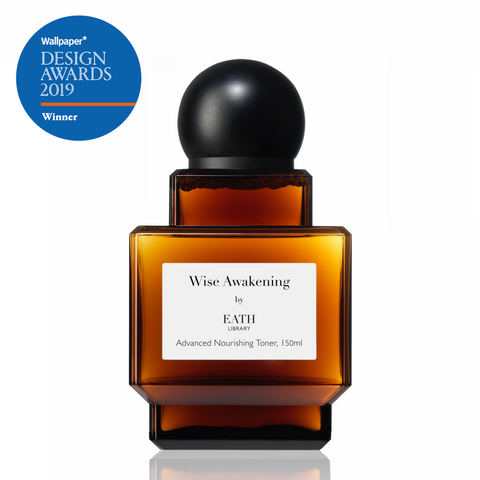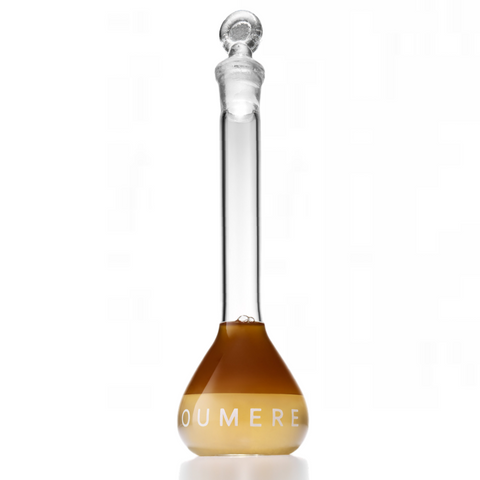Free shipping for HK orders HK$600+
Ginseng, a Natural Miracle Worker for Skin
September 21, 2021
Most of us associate ginseng with its health benefits, and it wasn’t until Korean beauty became so popular that ginseng in skincare started to gain attention. Is it just a gimmick though, or does it provide actual skin benefits?
____________________________________
The Different Types of Ginseng
There are a total of 13 species of ginseng that grow widely in Asia, North America and Europe. What we usually see on the market, is three different species of Panax ginseng from Korean, Chinese and America that are classified into four categories - fresh (less than 4-year-old and required minimal processing), white (4-6-year-old, peeled and dried), red (6-year-old, steamed and dried for 3 times), and black (6-year-old, steamed and dried for 9 times). Almost all medical products are derived from ginseng after 4 to 6 years of cultivation, but unlike oils that are best left unrefined, the more processed the ginseng is, the more benefits it actually provides.
Approximately 200 substances have been isolated from Korean ginseng, and 100 substances from American ginseng thus far, including ginsenosides, alkaloids, phenolics, phytosterol, carbohydrates, polypeptides, ginseng oils, amino acids, nitrogenous substances, vitamins, minerals, and certain enzymes. So far, scientists have been able to isolate over 100 types of Ginsenosides from the Panax ginseng.
All these substances together are found to be effective against fatigue, hyperglycemia, obesity, cancer, and possess anti-oxidant, anti-inflammation and anti-aging properties that can benefit both the body internally, as well as the skin.
____________________________________
Ginseng for the Skin
Genetics, environmental stress, oxidative stress, hormonal alterations and metabolism, all lead to accumulative transformations in skin constitution, function and appearance, resulting in visible signs of aging, as the reduction in fibroblasts in the extracellular matrix results in general atrophy, whilst decreased levels of collagen and elastin results in wrinkles and sagging, and stimulated melanogenesis leads to pigmentation.
So, is ginseng just a gimmick though? Actually no, clinical studies have proven that ginseng does prevent skin aging in a number of ways.
____________________________________
Skin Benefits of Ginseng ① Smooth Wrinkles, Increase Elasticity, Firm Skin
Ginseng helps with wrinkles on several fronts. Firstly, it protects against UV-induced skin damages, aka photoaging, thus preventing collagen and elastin breakdown. Secondly, its antioxidant contents prevent free radicals and other environmental aggressors from inducing oxidative stress, which also breakdown collagen and elastin, resulting in the formation of fine lines and wrinkles. Thirdly, it boosts circulation of even the smallest blood vessels within the skin, thus facilitating collagen production.
In addition, various clinical studies in vitro and in vivo studies have also shown ginseng to demonstrate anti-wrinkle effects by promoting cell proliferation, collagen synthesis and the stimulation of transforming growth factor-β (TGF-β), signaling pathways that perform a significant role in regulating collagen synthesis and the production of collagen type I and III to maintain younger looking skin, in human dermal fibroblasts.
The result, is a smoother, firmer, more elastic complexion with less wrinkles.
Product Recommendation
EATH Library
All Day Radiance Light Concentration Cream <- Click to shop
Product Recommendation
OUMERE
UV-R™ <- Click to shop
____________________________________
Skin Benefits of Ginseng ② Anti-Inflammatory, Anti-Bacterial & Anti-Viral
As the adaptability of the immune system declines with age, it is less able to respond properly to invasion of foreign matters like bacteria and irritants. Ginseng have been proven in various clinical trials to stimulate innate immune function, enhance bacterial and viral clearance while inhibiting pro-inflammatory response in many ways, such as inhibiting cytokines such as tumour necrosis factor alfa (TNF-α) and interlukin-8 (IL-8) within keratinocytes in dermal fibroblasts, suppressing inflammation by reducing plasma creatine kinase activity (CK) and interlukin-4, -6 and -10 (IL-4, -6 and -10) levels, down-regulating inducible nitric oxide synthase and cyclooxygenase-2 (markers of inflammation), as well as induction of apoptosis of inflammatory cells via the p53 pathway.
In fact, numerous literatures have shown ginseng, in particular Korean red ginseng, significant improve inflammatory skin issues like eczema, contact dermatitis, sensitivity, and acne.
Product Recommendation
EATH LIBRARY
The Bright Recovery Brightening Overnight Mask <- Click to shop
Product Recommendation
OUMERE
Serum Bioluminelle™ <- Click to shop
____________________________________
Skin Benefits of Ginseng ③ Brightens & Reduce Hyperpigmentation
Ginseng can target pigmentation, melasma and dull skin via numerous fronts, proven by numerous clinical studies.
First of all, when there is inflammation in the skin, which can be caused by UV damage, acne, picking and irritating the skin, free radicals, harsh cleansers, and hormonal fluctuations (from pregnancy or taking contraceptive pills, for example), a signal is sent to the melanocytes as part of an immune response. The melanocytes then overproduce the brown melanin pigment, resulting in visible hyperpigmentation on the skin. As ginseng can greatly improve inflammatory conditions, melanocytes activity is thus reduced.
Secondly, UV radiation can stimulate keratinocytes to induce the production and release of granulocyte-macrophage colony-stimulating factor (GM-CSF), an inducer of melanogenesis. Ginseng has been shown to block the resulting increased melanocyte proliferation, thereby decreasing the overall and concentrated (in spots) darkening of the skin after immediate and accumulated UV exposure.
Thirdly, studies have shown ginseng to directly target pigmentation at the cellular level through mechanisms such as direct inhibition of key enzymes of melanogenesis like tyrosinase and dopachrome tautomerase (DCT), inhibition of transcription factors including melanocyte inducing transcription factor (MITF) and nuclear factor-κB (NF-κB) as well as signaling pathways, including protein kinase A pathway and protein kinase C pathway, involved in melanogenesis, and enhancing production of antimelanogenic factor like interleukin-13 (IL-13).
The great thing about it, it works even at a low percentage——a research team has found that applying 0.05% of black ginseng extracts demonstrated twice as much improve to skin tone as compared to the subjects in the control group!
Product Recommendation
EATH LIBRARY
The Pure Wonder Active Serum <- Click to shop

Product Recommendation
EATH LIBRARY
Wise Awakening Advanced Nourishing Toner <- Click to shop
Also in The Journal

The Hidden Culprits of Skin Aging: Autophagy Decline and Zombie Cells
January 07, 2026
Don't just mask aging—reverse it. Learn how clearing Senescent Cells and restarting Autophagy creates lasting youthful skin.

The Anti-Aging Gold Standard: How Retinol Reshapes The Skin
November 12, 2025
Learn why retinol is the gold standard for anti-aging, how it works, what similar ingredients exist, and some common myths and misconceptions.

The Gut-Skin Connection: The Path to Healthy Skin
October 26, 2025
Acne, eczema, rosacea, and sensitivity can all be linked to the gut health, and even gluten? Learn all about the connection between the gut and the skin.
+Recent Articles
-
The Hidden Culprits of Skin Aging: Autophagy Decline and Zombie Cells
January 07, 2026
-
The Anti-Aging Gold Standard: How Retinol Reshapes The Skin
November 12, 2025
-
The Gut-Skin Connection: The Path to Healthy Skin
October 26, 2025
-
The Secret to Reversing Skin Aging! How Growth Factors & Peptides Help Turn Back the Clock
October 13, 2025
-
The Best Ways and Times to Take Different Supplements
August 19, 2025
-
Luxury vs. Budget-Friendly Skincare Products——What Are Their Differences?
August 06, 2025
-
How to Prevent and Improve Post-Inflammatory Hyperpigmentation (PIH)
July 10, 2025
-
How to Prevent and Improve Post-Inflammatory Erythema (PIE)
July 08, 2025
-
The Ultimate Cleansing Guide to Improve Skin Conditions
June 03, 2025
-
Do You Have Sugar Face? How Does Sugar Affect Our Skin and Appearance?
May 20, 2025
Subscribe to get skincare knowledge delivered to your inbox!







